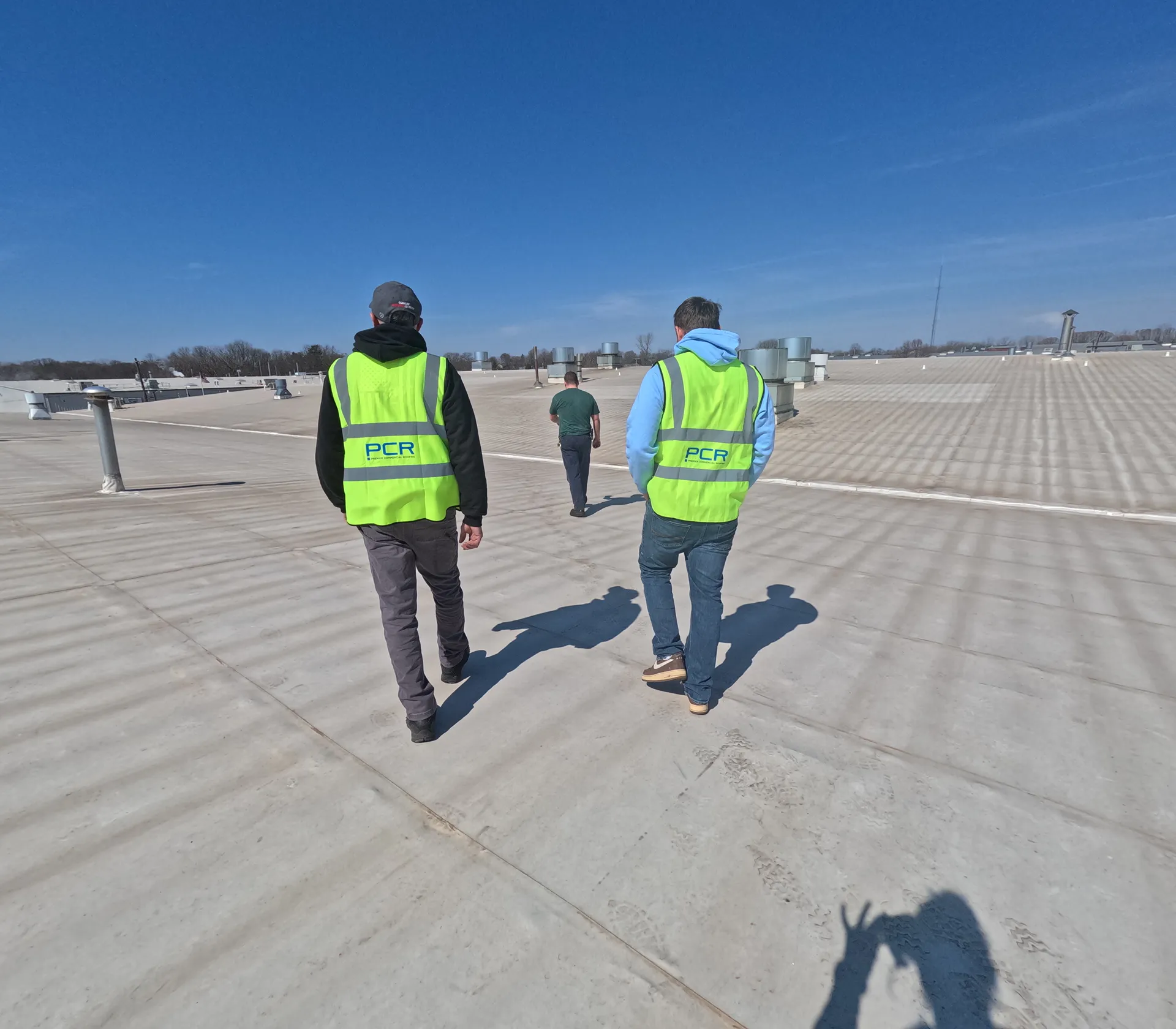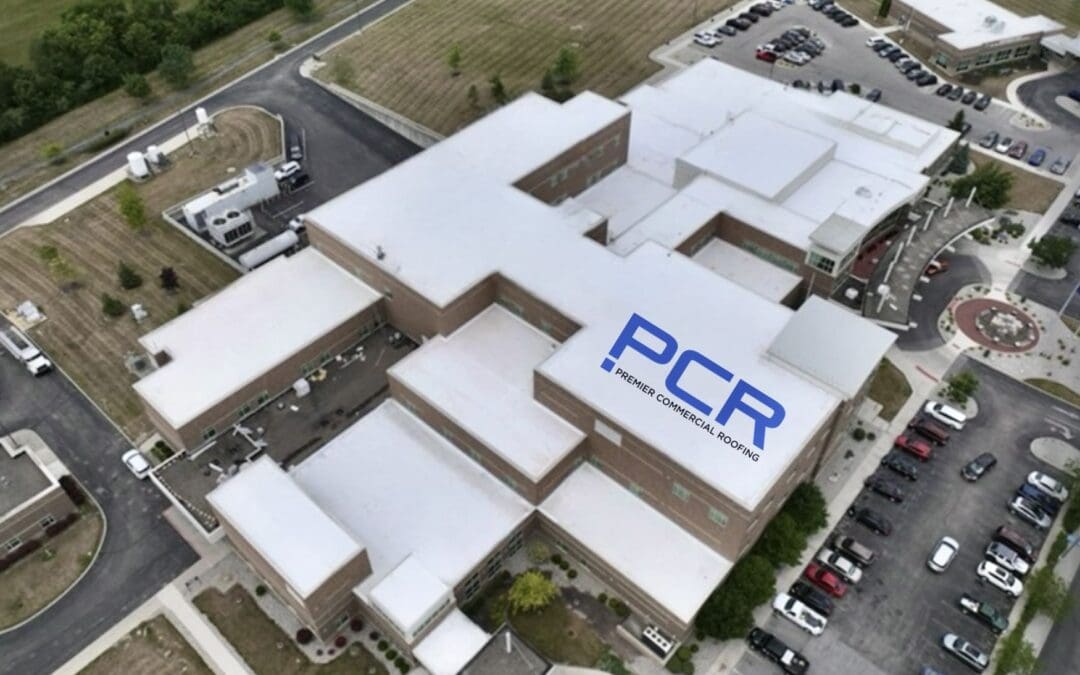
What are the Most Popular Types of Industrial Roofing Systems?
You can never run out of options regarding industrial roofing systems. However, every industrial roofing type comes with its pros and cons. As a result, it’s essential to understand the attributes of each option before making a decision. Let’s talk about the most common industrial roofing systems in detail below:
1. Metal Roofs
Metal roofing is a popular material in industrial applications due to its durability and unmatched performance. It’s designed to withstand extreme weather, high foot traffic, and heavy loads. These roofing materials are also cost-effective because they require minimal upkeep and maintenance.
Moreover, they come in various types, such as metal shingles, corrugated roofing, and standing seam roofing. The biggest drawback of metal roofing systems is that they are pretty expensive.
2. Flat Roofs
Flat roofs are preferred in industrial settings due to their low-pitch design, which makes the roof easy to walk on. Also, flat roofs are less expensive to maintain and install than sloped roofs. Since they are easier to design and construct, flat roofs are cheaper than other materials. A significant drawback of flat roofs is that they tend to struggle with weathering and ponding.
3. Modified Bitumen
As the name suggests, modified bitumen is a flat roofing system modified with plastic or rubber to enhance its durability and flexibility. It’s also a popular industrial roofing option because it can withstand extreme weather conditions, UV rays, and heavy loads. It also has excellent waterproofing properties. However, it can be challenging to repair if it’s damaged.
4. Single-Ply Membranes
Another popular industrial roofing option you might want to consider is single-ply membranes. These roofing systems have become extremely popular due to their lightweight nature. This means they are flexible and can expand and contract with temperature fluctuations. Moreover, they provide unmatched waterproofing properties. Single-ply membranes can also withstand UV rays. Unfortunately, they tend to be sensitive to some chemicals and pollutants.
How Often Does an Industrial Roofing System Need to Be Replaced?
The truth is that the lifespan of your industrial roofing system is not cast in stone. In fact, the durability of your roofing system will be determined by the level of maintenance, the material, and the quality of installation. On average, most industrial roofing systems last anywhere from 15 to 25 years. However, you can extend the durability of your industrial roofing system with regular maintenance and care.
What Should You Consider When Choosing an Industrial Roofing System?
Before settling for any industrial roofing system, you must always factor in the load your new roof will need to support. For instance, go for a durable option if your roof supports heavy foot traffic or equipment. Furthermore, it would be best if you also consider your area’s climate and weather conditions. Ensure you choose an option that can withstand harsh weather conditions if your area receives extreme heat or heavy rainfall. Another factor you must look at is the budget and maintenance cost. You must also consider energy efficiency, durability, appearance, and level of upkeep required.
How Can I Protect My Industrial Roof?
You should embrace a proactive approach to get the most from your industrial roof. Below is a list of a few ways to protect your industrial roof:
✅ Apply coatings
✅ Call for professional repairs whenever you notice a defect
✅ Clean your industrial roof regularly
✅ Schedule regular professional roof inspections
How Can I Tell if My Industrial Roof Requires Replacement or Repair?
Signs that your industrial roofing system needs immediate repair are quite obvious. Call our licensed industrial roofing contractors immediately if you notice any of the following:
- Sagging areas
- Leaks
- Signs of water damage
- Unusual mold, algae, or moss growth
- Blisters
- Cracks
- Old age
- Reduced energy efficiency
It’s essential to call for a professional inspection right away if you notice a defect before the issue grows into a costly problem. Our experienced Fort Wayne roofing contractors will comprehensively inspect and recommend the most suitable solution based on your situation and specific needs.





